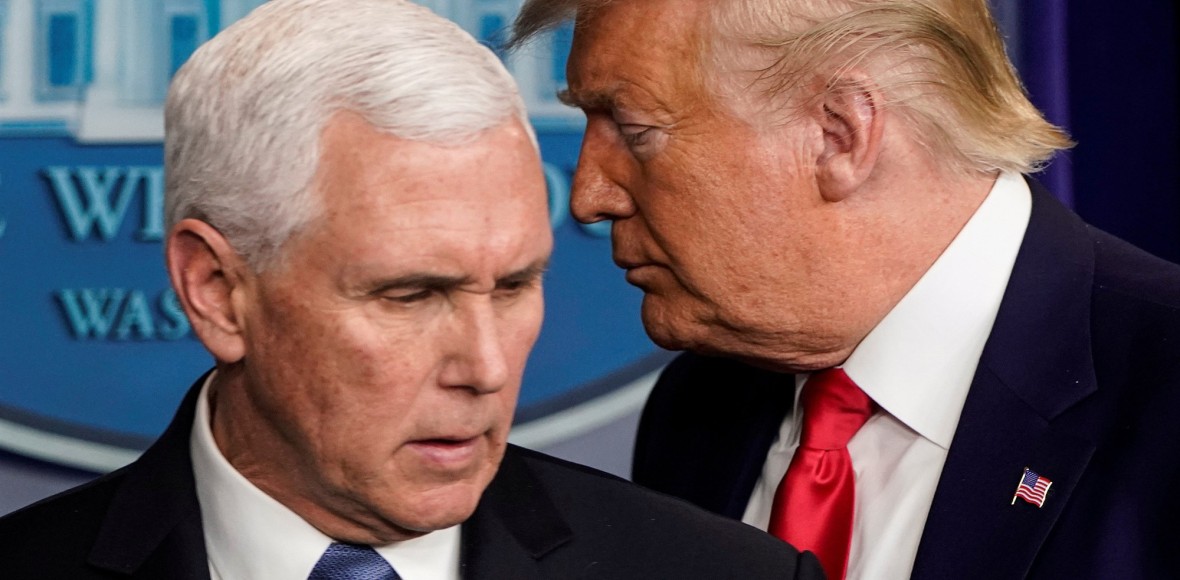For the past three years, many American business executives have cheered on President Donald Trump as they saw their stock prices soar and their taxes fall. But as the number of confirmed U.S. cases of the coronavirus reaches 158, with 11 deaths, corporate America is taking its own counsel.
From Ford to Google to JPMorgan Chase, a growing number of major companies is banning employees from foreign travel, nixing large meetings, testing out work-from-home contingency plans and canceling crucial industry events — all despite assurances from the White House that containment of the virus is “airtight.”
Investment giant Goldman Sachs has even warned that U.S. corporations’ earnings growth for the year could be zero percent.
The slew of policy updates and revised — or abandoned — financial forecasts for 2020 has put corporate America at odds with an administration that characterizes criticism of its virus response as a “hoax” and dismissed the worst week on Wall Street in more than a decade as an “overreaction.”
Instead, as health and safety officials advise families to stock up their food pantries, Trump’s top economic adviser, Larry Kudlow, told investors they should stock up on equities.
Full coverage of the coronavirus outbreak
“The virus story is not going to last forever,” Kudlow said on CNBC last month. “I would suggest very seriously taking a look at the market, the stock market, that is a lot cheaper than it was a week or two ago.”
Most businesses, however, are focused on prioritizing employee safety without overreacting or creating any economic fallout.
“Corporate America has a vested interest in preserving the well-being of their workers,” said Diane Swonk, chief economist at Grant Thornton. “They are not panicking but are over compensating to hedge against worst outcomes.”
Executives are betting on safety, knowing their shareholders will forgive them for being cautious but will never forget if they fail to take adequate precautions.
“Corporate America is restricting travel, allowing workers to work from home more and double-checking their crisis preparedness plans,” said Mark Zandi, chief economist of Moody’s Analytics. “If their sales and production are disrupted, they are starting to reassess their investment and hiring plans. No one has pulled back yet, but they are preparing the possibility they might need to.”
Businesses are applying an unprecedented amount of skepticism to guidance from the administration, with major companies preferring to rely on their own mathematical models to calculate the potential impact of the coronavirus.
A software company with 30,000 employees in 25 countries told NBC News that the corporate changes it has made to address the spread of coronavirus are far more significant than anything it has done before.
Download the NBC News app for latest updates on the coronavirus outbreak
Twitter, Goldman Sachs, Deutsche Bank and Apple are among the major businesses that have already restricted travel, with more Fortune 500 companies likely to follow, sources said.
With Europe the center of the viral outbreak, businesses in the region are a preview of what’s in store for American companies as the epidemic crosses continents. European businesses are encouraging employees to work from home. Banks, whose trading desks typically rely on large numbers of analysts working together in close proximity in open-air trading floors, are setting up off-site trading locations.
Until it becomes clear how intensely the coronavirus will spread across the U.S., corporate uncertainty looks set to continue. For now, some economists say it’s possible that the financial fallout could cut into growth in gross domestic product and potentially even drag the economy into recession.


